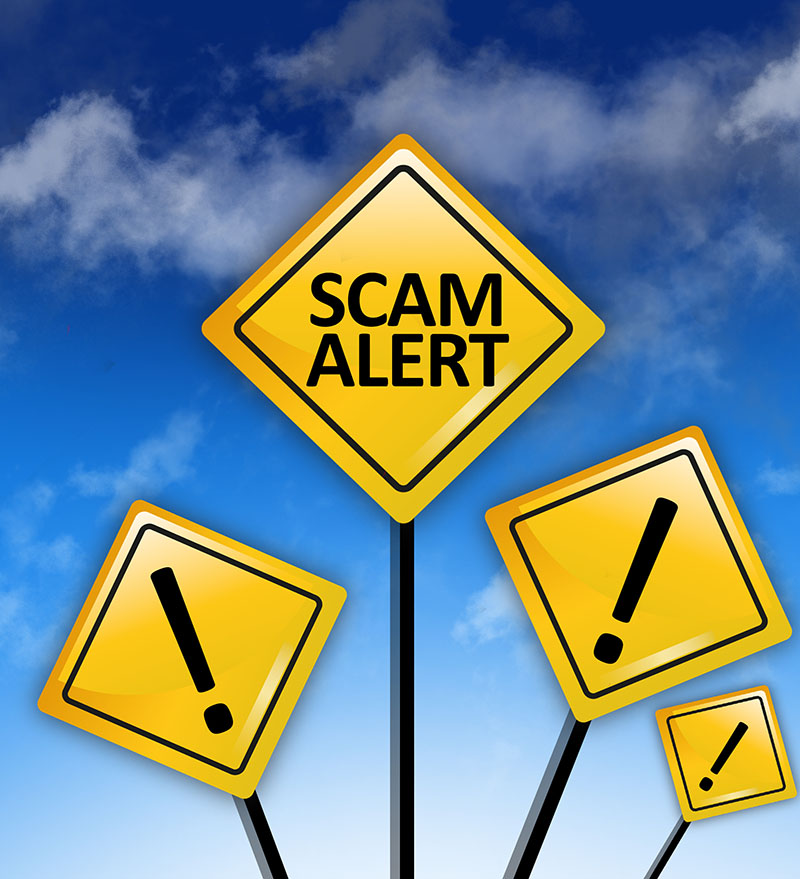 There are many types of scams going on and many people have become victims. These scams come in various forms such as telephone calls, e-mails, instant messages, mail, or even door to door visits. The people running the scams can be sophisticated, and while most people believe they would not fall victim, it seems more and more Canadians are losing a lot of money to them. I, myself, have received scam calls and emails. Sometimes I play around with them a little. Some of them get angry and start to threaten me if I am too slow in responding or if I ask too many questions. The thought of these people stealing money from Canadians, usually the most vulnerable Canadians, makes me upset, so. here are the top 10 scams going around this year and what you should know:
There are many types of scams going on and many people have become victims. These scams come in various forms such as telephone calls, e-mails, instant messages, mail, or even door to door visits. The people running the scams can be sophisticated, and while most people believe they would not fall victim, it seems more and more Canadians are losing a lot of money to them. I, myself, have received scam calls and emails. Sometimes I play around with them a little. Some of them get angry and start to threaten me if I am too slow in responding or if I ask too many questions. The thought of these people stealing money from Canadians, usually the most vulnerable Canadians, makes me upset, so. here are the top 10 scams going around this year and what you should know:
- Debt Collection: Someone calls and asks the victim to repay a made-up debt. They demand collection of those debts and can be harassing or threatening to their victims. They may say they are calling from a bank and claim they are owed fees that the victim may not have been aware of. Debt collectors usually work legitimately to collect debts owed to them but sometimes, “debt collection agencies and debt collectors…perpetrate scams on honest people who owe nothing” while others violate the law in collecting debts (CFR, online). If someone contacts you claiming you owe a debt, you should ask for the person’s name and tell them you will call the main number and speak to someone later. Also get the exact claim they say you owe and confirm this information with the business they are collecting for.
- Fake Government Officials: Many people are receiving phone calls, and sometimes e-mails or letters, from someone posing as an agent of the CRA, IRS, or FBI, telling victims that there is an arrest warrant out for them for falsifying information on their taxes, or for tax evasion, or something similar, and to avoid the arrest the victim must pay them through gift cards, Western Union, or follow a link and enter information (CRA, online). This is a scary one for a lot of people because even if they believe that there has been a mistake, they do not want to go to jail and may pay the money requested to avoid being arrested while they sort the problem out. The scammer tells them they cannot hang up the call or tell anyone, otherwise they will be arrested. The real government would not ask for pay with any type of those methods. Just hang up. The CRA will never ask for information about your passport, health card, or driver’s license, so don’t be fooled.
- Identity Theft, Phishing, and Phone Scams: In this scam, the victim gets an email from what appears to be a real bank or credit card company. They are informed that they must update their information, secure their account, or told their account will be closed if they don’t log in and they are given a link to click on. The person clicks the link and ends up entering their information on a fake website and the scammer can then gain access to their accounts. This is also an example of phishing, “Phishing is a method thieves and con men used to get personal information from you to steal your identity and then your money or benefits.” (CFR, online). If you receive anything like this, do not click the links provided or enter any information in. Go directly on a new tab and go to the legitimate website.
The phone scams in this list also include a “Your Microsoft license key has expired” scam call which involves a pop up that tells victims that their license for windows has expired, or their computer has been infected with a virus and to remove it, they must call a number (usually a fake Microsoft rep) or they may receive a phone call stating they are from Microsoft with the same line (CFR, online). You can safely delete any e-mail asking for information like this because most companies wouldn’t ask you to click on a link.
- Loans Scams / Credit Fixers: Here, the victim receives an e-mail or letter, usually offering them a debt consolidation loan, student loan, mortgage, small business loan, with or without any credit, or even with bad credit. “The offer and their websites may look real, except they will quickly ask you for personal financial information, social security number, bank account numbers” (CFR, online). This scam is designed to steal your personal information for further scams. You can just hang up.
- Fake Prizes, Sweepstakes, Free Gifts, Lottery Scams: The victim receives an e-mail or phone call stating that they have won the lottery, a prize, or a gift, but to redeem it the victim is told they need to pay a “small fee” to claim it or to cover “handling costs”. They may also claim they can only get the prize if they pay “transfer fees, taxes or provide proof of their identity and/or details of their bank accounts or credit cards in order to receive the “winnings”” (CFR, online). Sometimes the scammers will use the name of a real lottery and they will attempt to get money from the victim. The main thing to remember is that you cannot win a lottery or sweepstake if you did not enter and you won’t have to pay anything to collect a prize. Also, “Legitimate lotteries do NOT use e-mail to notify their winners” (CFR, online).
What we need to remember is to never provide personal information, bank information, or credit cards numbers through by email. Keep your access codes, passwords, and other information like this safe. Also keep your SIN card numbers safe and don’t use it as I.D unless you know for 100% that person is legally allowed to obtain that information (such as the real CRA). According to CTV news, Canadians lost about 130 million dollars last year in scams (Foran , online). Don’t feel too bad if you have been scammed because it has happened to many. There are many other scams out there, but what we need to remember is the age old saying of “if it’s too good to be true, it probably is”.

